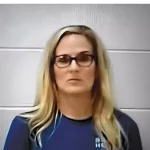Nurse Practitioners with Doctorates Challenge California Law on Title Usage

Three California nurse practitioners, all holding Doctor of Nursing Practice (DNP) degrees, have filed a lawsuit against the state of California, arguing that the state’s law restricting the use of the title “doctor” to physicians violates their First Amendment rights. The nurses claim that they should be allowed to use the honorific title without fear of facing regulatory consequences.
This case brings attention to the ongoing conflict over scope-creep in the medical field. The American Medical Association is advocating for a physician-led team model, while nursing organizations and some lawmakers are pushing for greater autonomy for allied health professionals.
The plaintiffs—Jacqueline Palmer, DNP; Heather Lewis, DNP; and Rodolfo Jaravata-Hanson, DNP—express concern that the state might take punitive action against them. They cite a previous incident involving “Doctor Sarah,” another DNP, who was fined $20,000 by the state for false advertising and fraud after using the title “Doctor” in her online advertising and social media accounts. The lawsuit stems from a desire to be able to accurately represent their educational achievements and qualifications without misleading the public.
Under California’s Medical Practice Act, only individuals with a certificate as a physician and surgeon are allowed to refer to themselves as “doctor” or “physician.” Nurse practitioners certified by the California Board of Registered Nursing can use titles like “Certified Nurse Practitioner” and “Advanced Practice Registered Nurse,” along with corresponding letters and phrases indicating their specialization.
The nonprofit Pacific Legal Foundation is representing the plaintiffs, and their attorneys argue that these nurse practitioners should be able to truthfully use the title “doctor” in their workplaces, on their business cards, and on social media, provided they clarify that they are nurse practitioners.
This issue has been addressed in other states as well. In Florida, legislators attempted to reserve the title “doctor” only for medical doctors (MDs) and doctors of osteopathic medicine (DOs), but Governor Ron DeSantis vetoed the bill. Meanwhile, Georgia lawmakers passed the Health Care Practitioners Truth and Transparency Act, requiring advanced practice nurses and physician assistants with doctoral degrees to clarify their roles as non-medical doctors or physicians when using the title “doctor” in clinical settings.
Some healthcare professionals argue that the title “doctor” should only be used in academic settings or among peers and suggest that all doctoral degree holders should avoid using it at the bedside to improve patient communication.
The defendants in the lawsuit are three state officials: California Attorney General Rob Bonta, state Medical Board President Kristina Lawson, and California Board of Registered Nursing Executive Officer Loretta Melby. The case brings to light the ongoing debate surrounding the appropriate use of the title “doctor” and the efforts to clarify the roles of physicians and nurse practitioners in various states.





